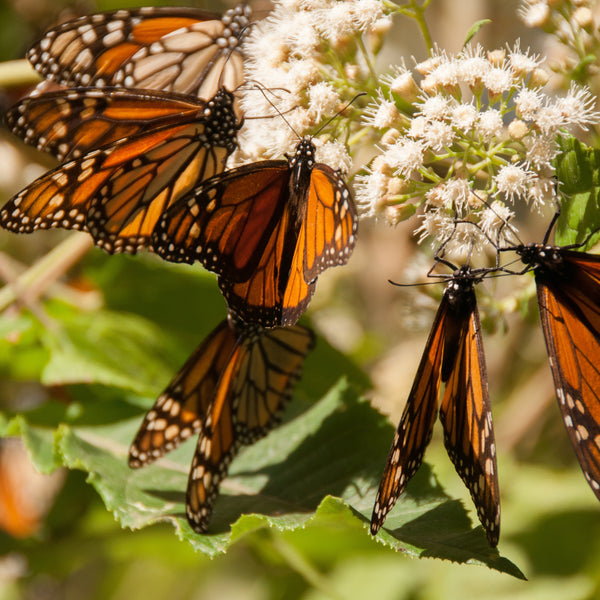Your Cart is Empty
Free Shipping on All US Orders!
Menu
-
- Garden Flags
- House Flags
- Mailbox Covers
- House & Garden Accents
- Doormats
- Flag Sets
- Accessories
- Personalized Flags
- On Sale!
-
- 877-352-4707
- Login

Add description, images, menus and links to your mega menu
A column with no settings can be used as a spacer
Link to your collections, sales and even external links
Add up to five columns
Add description, images, menus and links to your mega menu
A column with no settings can be used as a spacer
Link to your collections, sales and even external links
Add up to five columns
The Mighty Monarch
August 11, 2017 2 min read
Since childhood, I have loved Monarch butterflies with their big showy wings and distinctive white freckles. As harbingers of autumn, they appear in greatest numbers mid August to mid September preparing for their long migration to Mexico. What we’re seeing in our gardens now are the great great great grandchildren of the monarchs that migrated last spring.

I am sad to say that this lovely butterfly species has declined in numbers by 90% over the last 20 years. They have lost habitat as prairies continue to be plowed up for housing developments, and can't fight the herbicides eliminating milkweed (the Monarch’s food source) from crop fields, and the insecticides intended to kill off pest insect populations.
A group of U.S. mayors and other local government officials has gotten together and developed the Mayor’s Monarch pledge. To learn more about this effort, click here.
One their suggestions is to plant milkweed, which I did several years ago. There are some very beautiful, decorative varieties - although I am quite fond of the plain old prairie milkweed that I planted in my garden. I limit the growth to 3 stalks every summer, and have to be vigorous about it, because the milkweed sends up tons of shoots.
Last fall, as a result, we had a beautiful monarch flutter by the yard and investigate my milkweed plants. I didn’t get to see it, because I was at work, but my husband shot a lovely video and sent it to me. I hope that I get to see one myself this year!
We have some good friends who raise Monarchs in their backyard. They search out the eggs on milkweed plants, find them, cut the plants and put the stalks in water. It takes the eggs only 3-5 days to hatch. When they do, the caterpillars eat the plants. To learn more, check out this site.
Another way to help save the Monarchs is to report sightings. To find out how, click here.
Let’s all work together to give future generations the opportunity to enjoy this lovely creature! See if there's something that you can do in your community!
To enjoy the beauty of the Monarch, even when it is not fluttering by, Flags R Us has more wonderful designs! Check them out here!
Leave a comment
Comments will be approved before showing up.
Subscribe
Sign up to get the latest on sales, new releases and more …


